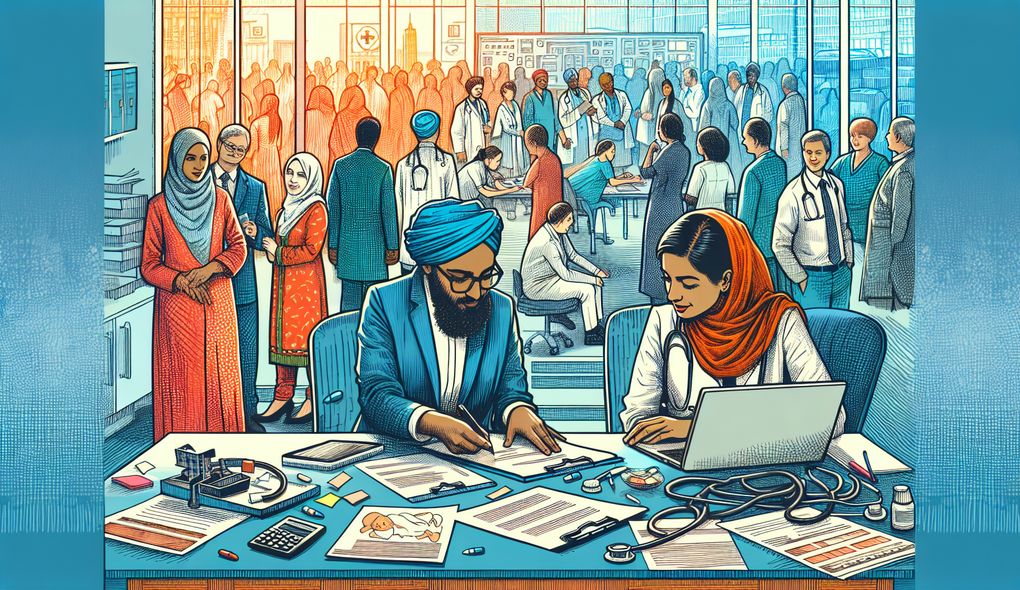Describe a time when you had to make a difficult decision in a healthcare setting. How did you approach it?
JUNIOR LEVEL

Sample answer to the question:
In my previous role as a healthcare administrator, I had to make a difficult decision when we were short-staffed due to unforeseen circumstances. I approached it by carefully assessing the situation and analyzing the impact it would have on patient care and staff morale. I quickly identified the critical tasks that needed immediate attention and prioritized them. I then reached out to other departments and requested temporary staff assistance to help alleviate the workload. Additionally, I worked closely with the remaining staff to ensure they were supported and provided with the necessary resources to manage the situation effectively. Although it was a challenging decision, I believe that my approach helped maintain the quality of care and minimized the disruption to patient services.
Here is a more solid answer:
In my previous role as a healthcare administrator, I encountered a difficult decision when our department faced a sudden staff shortage. Understanding the potential impact on patient care, I immediately took a leadership role by gathering all available information and analyzing the situation. I organized a meeting with frontline staff to openly discuss the issue and their concerns. This allowed me to effectively communicate the challenges we were facing and assure them that their voices were heard. To address the staffing shortage, I collaborated with HR and neighboring departments to secure temporary staff resources. I also reorganized our workflow and assigned tasks based on urgency and staff competency. By proactively monitoring the situation and maintaining open lines of communication, we were able to ensure continuity of care and minimize any negative impact on patient outcomes.
Why is this a more solid answer?
The solid answer provides more specific details about the difficult decision in a healthcare setting. It demonstrates leadership skills by actively gathering information, organizing a meeting, and openly communicating with the staff. The candidate also showcases their organization skills by collaborating with HR and other departments, as well as reorganizing the workflow. However, it could further elaborate on the problem-solving aspect and provide more quantitative outcomes of the decision.
An example of a exceptional answer:
During my time as a healthcare administrator, I confronted a challenging decision when our facility experienced a sudden influx of patient admissions without a proportional increase in staffing. Recognizing the potential strain on patient care and staff well-being, I immediately took action. I engaged in data analysis to identify high-priority patient care needs and areas of potential risk. I then led a team meeting, consisting of frontline staff and department heads, to openly discuss the situation and brainstorm possible solutions. We collectively decided to prioritize patient assignments based on acuity and staff competencies, ensuring optimal care delivery despite the staffing limitations. Additionally, to alleviate the workload, I collaborated with HR to expedite the hiring process and engage agency staff for immediate support. Daily huddles were established to monitor our progress, identify challenges, and adapt accordingly. As a result of our proactive approach, our patient satisfaction rates remained consistently high, while staff burnout and turnover rates stayed below industry benchmarks.
Why is this an exceptional answer?
The exceptional answer provides a detailed account of the difficult decision made in a healthcare setting. The candidate showcases strong leadership by engaging in data analysis, leading a team meeting, and collaborating with HR. The answer also highlights the candidate's problem-solving skills by implementing prioritization strategies and engaging agency staff. The use of quantifiable outcomes, such as patient satisfaction rates and staff burnout/turnover rates, demonstrates the impact of the decision. The answer could be further improved by discussing any challenges faced during the decision-making process and how they were overcome.
How to prepare for this question:
- Reflect on past experiences in healthcare settings where difficult decisions were made. Consider situations involving limited resources, staffing challenges, or patient care issues.
- Familiarize yourself with the organization's policies and procedures related to decision-making in healthcare settings.
- Practice describing your decision-making process, emphasizing the steps taken to gather information, involve relevant stakeholders, and communicate effectively.
- Highlight examples of leadership, organization, communication, and problem-solving skills in your preparation.
- Consider the potential impact of your decisions on patient outcomes, staff morale, and organizational goals.
- Be prepared to discuss any challenges or obstacles encountered during the decision-making process and how you overcame them.
What are interviewers evaluating with this question?
- Leadership
- Organization
- Communication
- Problem-solving

